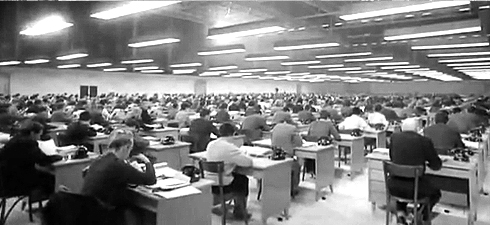The foreign minister, who will represent the continent on the global stage and act as the voice of the 27 member countries would become Javier Solana's heir as secretary-general of the Council and, at the same time, take over the portfolio of the EU foreign commissioner and serve as the vice president of the European Commission. No one has ever held a seat in both institutions, the Council and the Commission. To achieve this mission, a powerful administration will be placed at Catherine Ashton's disposal, something which promises to be both expensive and enormous. The new "European External Action Service" could end up with a staff of 6,000 to 7,000 eurocrats. The EU would acquire yet another bloated bureaucracy -- without eliminating a single permanent position in the foreign ministries of the 27 member states.
High Rep on a short leash
For decades, dedicated Europeans have dreamt of a unified foreign policy. Hopefully, the days will be over when Solana, the EU's top diplomat, railed against electoral fraud in Kenya, while at the same time the EU development commissioner transferred millions of euros to the bank accounts of those who had rigged the elections. To make matters worse, strict limits will be placed on Mrs Ashton's autonomy, as outlined in a 10-page paper which was approved at the EU summit in October. During the EU's regular consultations with the leaders of Russia, China or the US, the Council and the Commission presidents will do the talking. The foreign minister merely plays a "supportive role," as they call it in Brussels.
In addition to being placed on a short leash at such summits, Europe's chief diplomat will also not be allowed to venture beyond strictly defined limits when dealing with day-to-day politics. The high representative may be allowed to speak with the Turkish government about its relations with Iraq, but she will be prohibited from discussing with Ankara the prerequisites for possible EU membership, such as freedom of the press and respecting human rights. In the future, the issue of Turkish membership will still be reserved for the Commission. In the Balkans Mrs. Ashton can talk about everything under the sun -- but will be strictly forbidden from mentioning possible financial aid from Brussels. Everything that has to do with EU enlargement falls under the jurisdiction of the Commission. She will also have to steer clear of key areas such as foreign aid and international trade.
Jobs for the boys, and girls
The enormous flock of aides to the high representative could also create additional confusion. They are quite a mixed bunch. A few hundred experts from the European Council are to team up with 3,000 colleagues from the Commission. This group will be joined by as many as 2,000 additional diplomats and experts from all the member states. The heads of state and government demand that a third of the workforce should be selected so that the staff adequately represents Europe's far-flung geography -- no country should be neglected. The regional distribution has to be balanced, along with the genders of staff members. What's more, plans call for them to be replaced every four years -- and regularly rotate jobs during their tour of duty.
Meanwhile workers at the European Commission in Brussels appear more concerned about their own interests. They don't have too much to worry about. In a worst-case scenario, they will be transferred to a cushy position in one of the EU departments that already have a large number of personnel today -- and relatively little work to do.
Was this article useful? If so we are delighted!
It is freely available because we believe that the right to free and independent information is essential for democracy. But this right is not guaranteed forever, and independence comes at a cost. We need your support in order to continue publishing independent, multilingual news for all Europeans.
Discover our subscription offers and their exclusive benefits and become a member of our community now!












